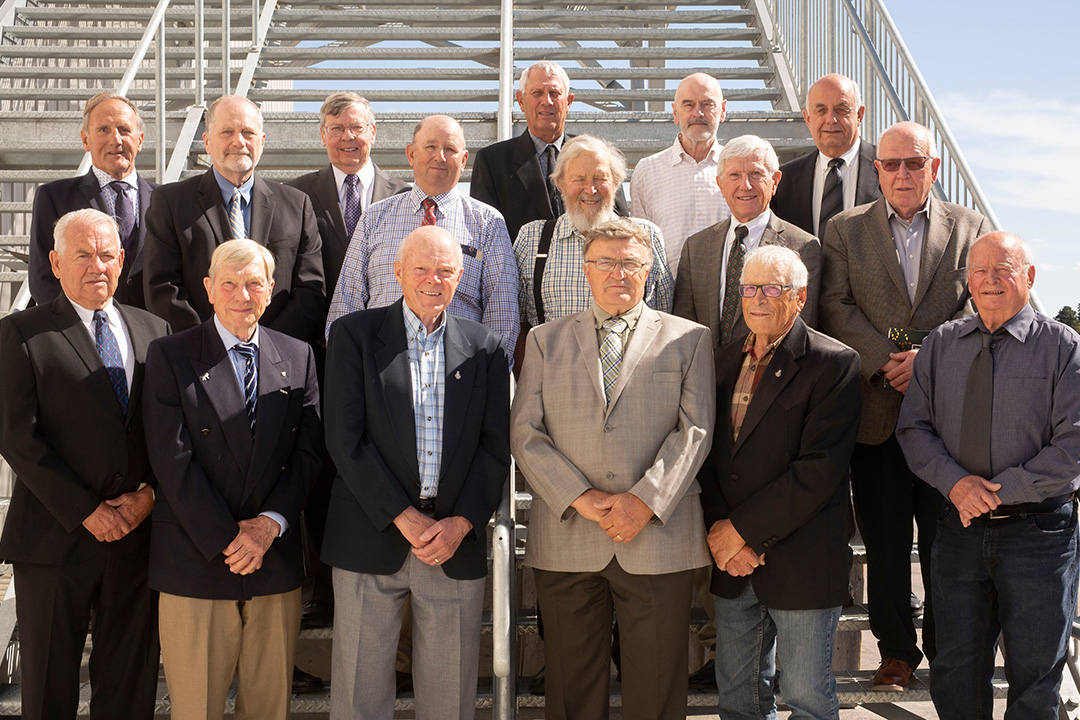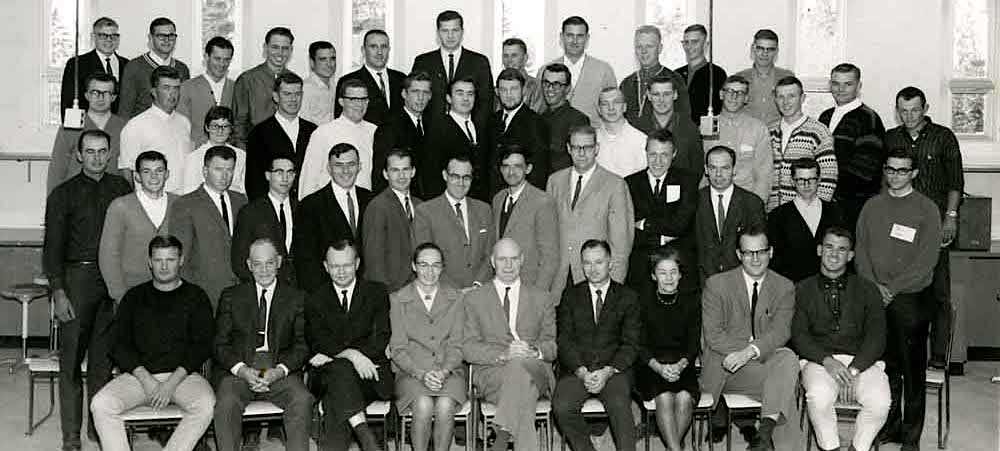
First veterinary class celebrates 50 years
Dr. Ernie Olfert (BA'65, DVM'69, MSc'76) and Dr. Peter Rempel (BA'65, DVM'69) were working at a fishing camp at Dore Lake, Sask., in 1965 when they received the letters that would change their lives.
By Jeanette NeufeldThe lifelong friends celebrated their acceptance as members of the first class at the Western College of Veterinary Medicine (WCVM)—the new regional veterinary college for the four western provinces.
Both men had wanted to become veterinarians for years, but admission into Ontario Veterinary College, Canada’s only veterinary college at the time, was nearly impossible for western Canadians. Instead, they waited for the new veterinary college to open on the University of Saskatchewan (USask) campus. That day finally came in 1965 when the WCVM’s Doctor of Veterinary Medicine (DVM) program became available to students from across Western Canada.
This spring, members of the WCVM Class of 1969 celebrated the 50th anniversary of their graduation, attending June’s USask convocation ceremonies at Merlis Belsher Place and the WCVM awards banquet.
Being part of the WCVM’s first class wasn’t easy: while the new college was under construction, students had to hustle between classes across campus. The four-year program was also very rigorous, with a lot of hands-on experience.
“In the vet college, if you dawdled at all you were so far behind you couldn’t catch up,” said Rempel.
WCVM’s first veterinary graduates entered a rapidly changing profession.
“If you went into large animal practice, you did a lot of work at the end of a rope. Farmers still expected you to be able to rope and catch that animal, as well as treat it,” said Rempel, who went on to work in Unity, Sask.
While most of the WCVM graduates initially entered large animal practice to meet the demand of Western Canada’s agriculture industry, a few focused on a growing small animal clientele.
“I probably hadn’t seen more than two cats until about 1971, then suddenly, cats started coming in,” said Rempel, whose small animal caseload grew to about 25 per cent by the mid-1970s.

The increasing number of female veterinarians was another major change. The Class of 1969 was the WCVM’s only class with no female graduates. Fifty years later, only 13 of the 78 graduates in the Class of 2019 are men.
Much like today, the WCVM’s first graduates were in high demand. Many didn’t attend their own convocation ceremonies because they were already busy working, filling the desperate need for veterinarians across Western Canada.
“In 1969, if you called five places, you could have got five jobs,” Rempel said.
Members of the first class went on to serve varied roles in large and small animal medicine, equine medicine, reproduction, regulatory medicine, human health research and education, and public service. Rempel became Saskatchewan’s provincial veterinarian, while classmate Dr. Terry Church (DVM) filled a similar role in Alberta.
Olfert was USask’s longtime university veterinarian and helped set up national regulations for protecting the health and care of research animals.
“When I started, there really weren’t any government or national standards. In a sense, that all got built, and I was a part of that,” Olfert said.
The first WCVM class began their philanthropic efforts by establishing the college’s first class fund, raising money for a hospital expansion, research awards, and the annual WCVM ’69 Class President Award that recognizes students’ contributions to the college and student life.
“If you want to look at all of us, veterinary medicine was our whole lives. For me as a large animal practitioner, it was 24 hours a day,” said Rempel. “Cumulatively, the feeling came across that maybe we should support new veterinarians, tell them what a good thing it is.”
Article originally published on https://news.usask.ca

